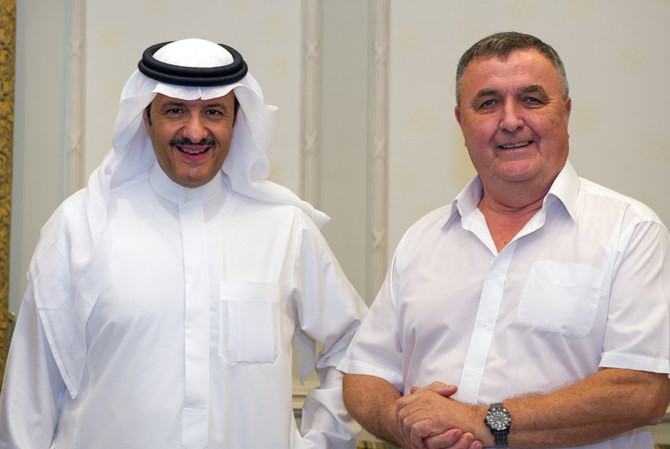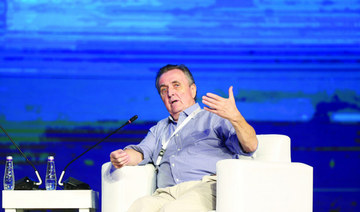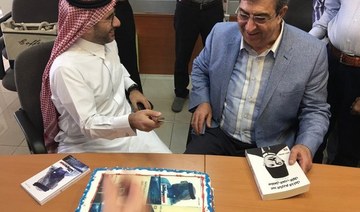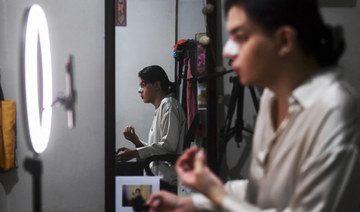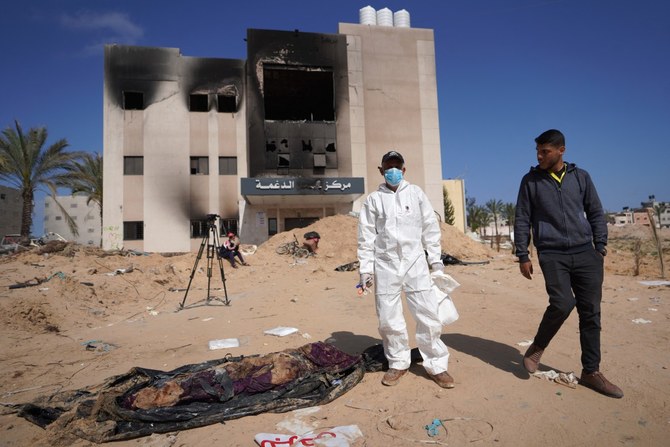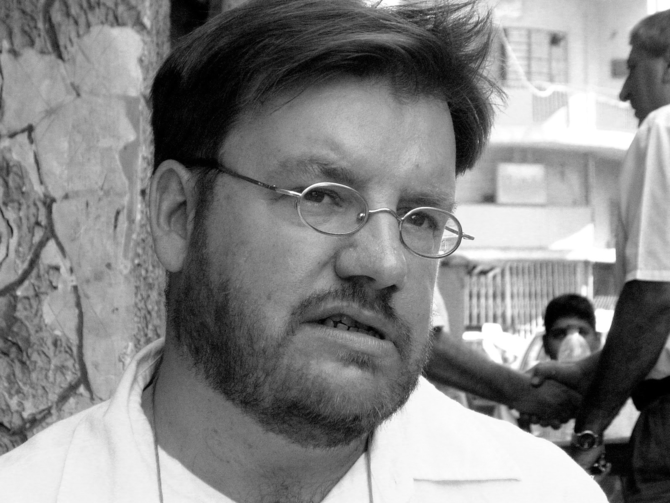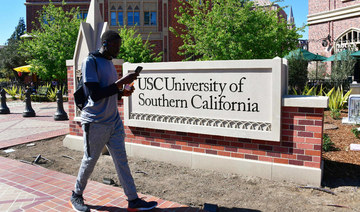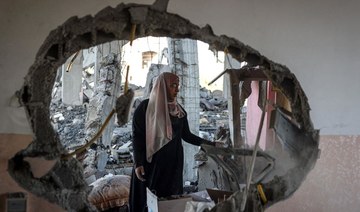RIYADH: In a heartfelt tribute to former Arab News staffer Roger Harrison, who has died on the Spanish island of Mallorca at the age of 75, Prince Sultan bin Salman, the first Arab and Muslim astronaut, said that the journalist’s love of Saudi Arabia and its people was obvious in all that he did.
“He wasn’t doing those things only for his job with Arab News, but because he enjoyed it,” he said.
In an exclusive interview, Prince Sultan recalled that he was head of the Saudi Commission for Tourism when he met Harrison, a senior reporter with Arab News from 2001 until 2013, for the first time.
“Arab News was doing some fantastic articles about Saudi Arabia,” he said. “I think I noticed his name and subsequently we connected. It became a real friendship because his feelings were overwhelming.
“We ended up also doing some traveling together in different parts of the country. We invited him to come to our farm for various conferences. Basically Roger was often there when we had guests, official or nonofficial.
“And then in 2006, Bandar bin Khaled Al-Faisal came up with the idea of doing, for the first time ever, an aerial tour of Saudi Arabia using a glider.”
Harrison’s work in his seminal 2014 book, “Wings Over Arabia,” a photographic record of the three-man glider mission that flew over and photographed many spectacular and rarely seen areas of the Kingdom, has been widely praised. Prince Sultan explained how the adventure came about and how Harrison became a part of it.
“I got my gliding license in 1986 in Hawaii but I really hadn’t flown much after that,” he said. “Bandar and I started gliding in the 2000s. We met John Bally who was an English gliding instructor and he joined us when we started gliding in the Alps.
“Then we developed the idea of coming to Saudi Arabia and gliding in the Kingdom. We brought the team that worked on the documentary series. Then I brought Roger in as part of the Tourism Commission to document the mission and he threw himself completely into it.”
The prince said Roger became totally involved with the team planning Wings Over Arabia.
“It was a big team and I am very sorry to say that three of them have now passed away,” he said. “Ahmed Al-Zahrani was our mechanic in the Aviation Club. He unfortunately died in an accident. He was a great guy and you can see him in the video. I am still actually looking out for his two sons and his family.
“The other one was Captain Zakariah from Sri Lanka. He passed away only a few months ago, after he retired. He was with me for years and he flew a Twin Otter airplane, which you can see in the movie and also in the book.
“The Twin Otter was given to us by Crown Prince Sultan bin Abdulaziz, though it was originally given to King Fahd. It’s a great airplane but a very slow one so we took the door off. It was then used by the photography team, the American team that comprised the other photographers and the cinematographers for the documentary.”
Prince Sultan said that he brought Harrison and Bally to the team, while Prince Bandar assembled the documentary crew.
“John came in to fly with us and, in fact, he had a great deal more experience than we did,” he said. “I was actually the most experienced pilot in the group because I had started flying in 1976 and was in the Saudi Royal Air Force. I have probably done 10,000 hours of flying jets but I had the least gliding experience in the group.
“John had the most and, of course, there was Bandar who had some gliding experience and was a great pilot, too. We flew around the Kingdom and planned the trip. Roger’s role was to do photography and write articles.”
Prince Sultan said Harrison was a vital part of the team that flew in the Twin Otter.
“He always told me he always felt sick in the plane but he kept flying, even though the door was open and he was hanging by a small strap,” said the prince. “We basically just went around Saudi Arabia on seven or eight-day trips.
“Roger of course published a number of things and we worked together on various ideas, and one of them was Saudi Colors. This was an initiative I supported within the Tourism Commission and it sponsored an annual event for photography and photographers.
“We sent Saudi photographers, and others, out of the country and, basically, we had an awards program that developed into making movies and videos. Ultimately the program even included expats and I wish it had continued. It showcased the great talents not only of Saudis but of expats as well.”
Talking about his passion for flying, Prince Sultan said: “It’s all about trying to live life fully. I do a lot of serious work, a lot of charity work, a lot of government work, and a lot of ministry work. After all, I live here.
“There are many people who tell me they have never seen me in a building because so much of my life is outside. In my childhood, Riyadh was much smaller and my brothers and I enjoyed horseback riding in the desert. The desert was not as far away as it is now; it was nothing but sand dunes and there was a small stable and a small villa which my father let us use.”
There were also more formal events, including visits from foreign dignitaries, but even these often had an outdoors element.
King Faisal would ask King Salman, the governor of Riyadh during that time, to host several desert dinners in honor of dignitaries, such as the King of Morocco, the president of Lebanon and many other heads of state. “They were beautiful events which I attended with my brother Fahad,” said Prince Sultan fondly of the wonderful memories.
“The outdoors, for me, has always been something that I love and that is true even today. I can’t imagine life without being outdoors; I often sit outdoors and, especially in the evenings, I go to the desert.”
Prince Sultan said he developed a love of aviation when he was in America.
“I had a friend there, Joe Clarke,” he explained. “He owned a lot of airplanes and he is another fine man who has passed away. America is the country of adventure and is the most amazing place, too. I lived in Colorado and most of the time there I skied. I do hardcore skiing, and I used to go camping but not any more.”
Now, he has other places that inspire him.
“I sometimes go to Africa now, though I don’t shoot animals; instead I use a camera,” he said. “We go in cars following the animals as they do their seasonal migrations. I have worked with National Geographic and with some of its great photographers who have published books. I took National Geographic to places they wanted to go in the Kingdom.”
Prince Sultan said the Kingdom’s heritage and traditions remain extremely important to him.
“Our national heritage became an issue for me, and I live in a mudhouse here,” he explained. “I always pay attention to traditional things and ways of living and I visit a lot of towns and villages. I still go to Taif, for its high altitude, and just last weekend I went on a beautiful high-altitude hike there.
“The flying part is the cream on the cake in terms of adventure because you see the world from a different perspective. You can always see the beauty of the universe and of our country.
“Its beauty was opened up by Saudi Colors. We saw Saudi Arabia from so many different perspectives: That of thousands of Saudis, and thousands of photographers and movie makers. A whole industry grew from that and, InshaAllah, we will recreate it. I am working on that now.”
Roger Harrison’s affection for Saudi Arabia was also clear, the prince added.
“I think Roger was, first of all, a man who loved Saudi Arabia and loved its people too,” he said. “That’s basically what fired him up to research and write all those stories. He was a man with a lot of energy and it drove him to do many things and opened many doors. I worked with him on lots of ideas; some came (to pass) and as for the others, we had been waiting for the coronavirus to go away.
“I think Roger was somebody who appreciated beauty and adventure and the life of the people. I connect with those kinds of people: People who can feel life and not just live it.
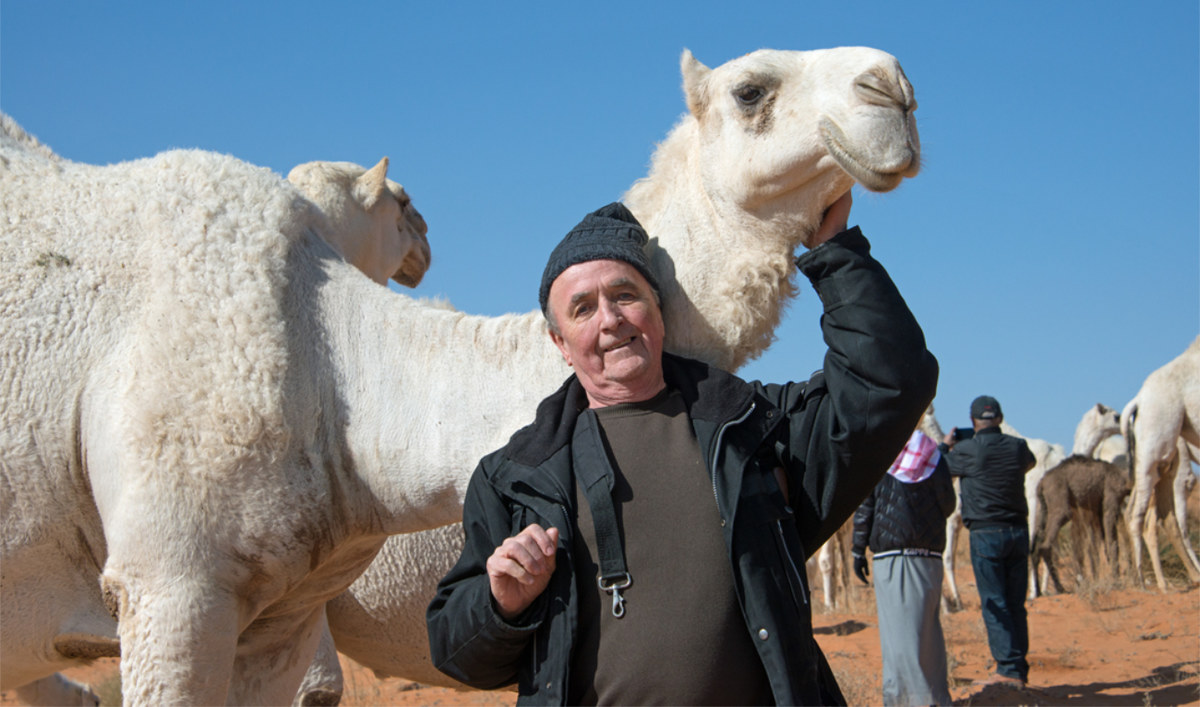
Harrison was born in 1946. He arrived in Saudi Arabia with his wife in 1996. (Supplied)
“Roger was truly unique and I always enjoyed time with him, whether it was a casual meeting or when he came to my farm for lunch or dinner. He always added an element of enthusiasm that we could all enjoy because he had been to places that he talked about and impressed us with his adventurous spirit.”
Prince Sultan said that when he was asked recently to make a video for an award presentation he immediately thought of Roger.
“In the US there is a huge aviation community and there is an annual award given to what they call ‘Legends of Aviation,’” he said. “To be an aviator is different from being a pilot, you know. A pilot is like a driver but to be an aviator is to have a passion, rather than simply a hobby you indulge in every once in a while.
“To my surprise, I was informed that the community wanted to nominate me for the award. They asked me for a two-minute video and the first person I thought of to do it was Roger. A month before, a mutual friend from the US had sent me a message saying he had been trying unsuccessfully to get in touch with Roger. So three or four days ago, I asked my assistant to reach out to Roger and tell him I wanted to talk to him about doing the video and also find out how he was.
“When my assistant finally got an answer, he spoke to Roger’s son who said: ‘My father passed away on Saturday.’"
The sad news was a great shock to the prince.
“That blew me away,” he said. “We had made plans to meet in Mallorca (where Roger had settled with his wife). Roger had even sent me suggestions of places to visit, where the Arabs from Spain had been (Al-Andalus). I was looking forward to going there in the off-season and enjoying spending some time with Roger again.
“After I had heard the bad news, I spoke to Roger’s wife and son and they were interested in seeing what Arab News had published about their husband and father. I told them there would be an event to honor Roger and we would bring them here.”
Prince Sultan said he had previously persuaded Roger to mount an exhibition of his photographs of Saudi Arabia, similar to one the prince had worked on with another distinguished expat, Richard Bodeker.
“Bodeker was a brilliant landscaper,” he said. “In fact, there is a YouTube movie called ‘The Gardener and the Prince’ that tells the story of Richard Bodeker and what he accomplished in Saudi Arabia.
“I had talked him into doing a documentary about his work; he probably had 20,000 to 30,000 photos of Saudi plants and of the landscaping he had done in the Diplomatic Quarter and Wadi Hanifah. He did the landscaping for the National Museum and though he died about a year and a half ago, his company and his son are still here. There is a garden in the Diplomatic Quarter that is named for him in acknowledgment of his 40 years in Saudi Arabia and the fantastic work he did.
“As with him, so with Roger and his achievements: We will not see his like again."



